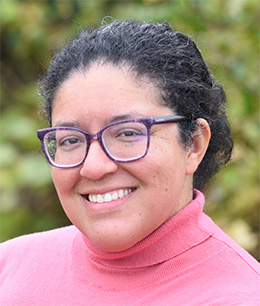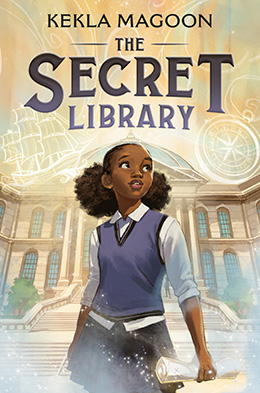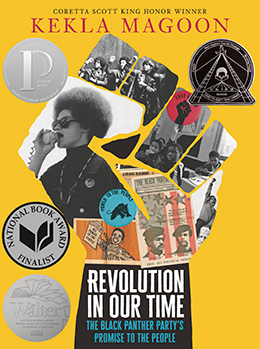Avi’s 2025 Summer Blog Series
Kekla Magoon
From Avi: As I have for the last three summers, (summer of 2024, summer of 2023, summer of 2022) I’ve invited 13 admired authors to write for my blog for the next three months. I hope you’ll tune in each Tuesday to see who answered this year’s question, which we hope provides you with inspiration. And by the end of the summer, you’ll have new authors to follow!
What’s your favorite strategy for encouraging young people to read?

One of the most gratifying things that’s ever happened to me in my career occurred after a school author visit, signing books at the front of the auditorium. A young man hovered at the back of the line. He was a short, stocky Black sophomore, shuffling his feet and looking for all the world like he didn’t want to be there. He waited until everyone else had gone through the line, and then he approached. As he held out his copy of the book for me to sign, he said quietly, “This is the first book I ever finished.”
It’s difficult to describe the little storm that happened in my heart after he spoke, but if you’ve ever spent time working with kids or teens—whether as a teacher, librarian, author, parent, or volunteer—you probably can recall the thrill that strikes in the rare moments when you really reach one of them. It had never occurred to me that such a thing was even possible, that my work could be That Book for someone.
“That’s amazing,” I said, keeping my surface calm somehow. “Do you think you’d like to try reading another one?”
He said yes, so I offered a few recommendations, a couple book titles as well as the names of some Black authors who held meaning for me. Then he went on his way.
It was the first time this had happened to me, and it didn’t occur to me to ask him why. Why was this the first book that you finished? Note that he didn’t say it was the first book he’d ever read, or the first book he ever picked up, but it was the first one that made him interested enough to actually finish. What about it made it The One?
The next time this happened, with a different young Black man in a different school, the moment was almost identical, from the slow reluctant sidle to the quiet proud admission and the “yes, I’d like to try again,” but this time I found the wherewithal to ask, “What made this a book you wanted to finish?”
He said, “The characters felt like people I know, and I wanted to know what happened to them because it mattered to me.” The book was How It Went Down, a multiple-viewpoint novel about the controversial shooting of a Black teen by a white man, something I wrote in response to and in conversation with the Black Lives Matter movement.
This story leads me to the first of three thoughts I’d like to share about encouraging young people to read: Our classroom curricula and our library shelves must contain a diverse range of books about people from many different cultures and communities. For both of these boys, discovering this book was the first time they felt like they saw themselves in the literature they were being taught. It was the first time they realized that books could be about them and relevant to them. We need more of that.
Since I became an aunt a few years ago, one of my greatest joys has been gifting my nephew with signed picture books. He loves animals, so I gave him Kate Messner’s Over and Under the Canyon picture book, which tells a story about the desert with many animals and nature elements highlighted in the illustrations. At the back of the book, there’s a glossary of all the mentioned animals with more details about them. This is my nephew’s favorite book, yet he steadfastly refuses to read the story. Instead, he loves reading the animal glossary over and over. I have read it out loud to him in its entirety dozens of times, and it’s maddening because there’s also a beautiful story in the first half of the book that I would like him to discover and enjoy. But reading this way with him has taught me so much, namely that forcing him to read the book the way I prefer to would take the joy out of it for him.
This brings me to my second thought about how we can encourage reading: Let kids engage with a book the way they want to, not the way you think they’re supposed to. There are many ways to enjoy a book. Some people flip to the ending to read it first while others find spoilers enraging. To each their own!
I applied this lesson to my writing when I wrote my non-fiction YA book, Revolution in Our Time: The Black Panther Party’s Promise to the People. The book is a hefty 400 pages, and it includes nearly 200 images, with an item of visual interest appearing on nearly every spread. My goal was to ensure that a reader who wanted to pick up the book and simply flip through the pictures would get a fairly complete summary of the story through the images and captions.
For my final anecdote, I’ll draw on my own experience as a reader. I’ve often found it really difficult and even painful at times to talk about my favorite books and what I like to read. It comes up a lot as an author! But I often run up against a feeling of shame about some of the books I like to read. Where does this shame come from? Partly it comes from my shyness about revealing myself—a person’s reading preferences can actually be an intimate detail to share. But another part of it comes from the labels we as a culture, we as educators, we as a literary community put on certain books. People who love books tend to value literary quality, which is not itself a bad thing, but it can do some harm when it comes to how we talk about the many books that don’t meet this standard. For example, why do we feel compelled to talk about certain books as “guilty pleasure” reads?
So, my final thought about encouraging reading is: Celebrate whatever books a young person wants to read. Find out why they love them. Be a voice in their lives who finds value in all kinds of stories rather than one who insists that they read books you personally deem “good.” And, yes, this can apply to content as well as literary merit. Celebrate the kid who wants to read about death and destruction, the one who will only read graphic lit, the one who obsesses over horror, the one who can’t stand sad endings or is overwhelmed by anything too emotionally serious. We need the books we need for reasons we can’t always understand, and it is healing to have spaces where that is recognized as not merely okay but truly wonderful.
Happy reading!
Particulars
Kekla Magoon writes novels and nonfiction books for children and teens, often on themes of identity, community, empowerment and social justice. She received the 2021 Margaret A. Edwards Award, a body of work recognition for her significant and lasting contribution to young adult literature. She is also a recipient of the Boston Globe-Horn Book Award, a Michael L. Printz Honor, four Coretta Scott King Honors, two Walter Award Honors, and an NAACP Image Award, in addition to being a finalist for the National Book Award. Kekla holds a B.A. from Northwestern University and an M.F.A. in Writing from Vermont College of Fine Arts, where she is also faculty emerita.


